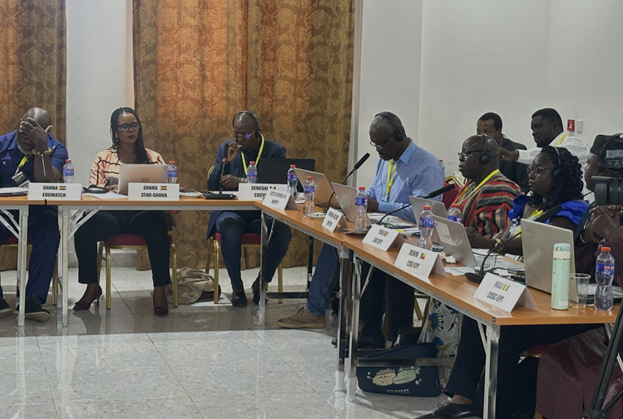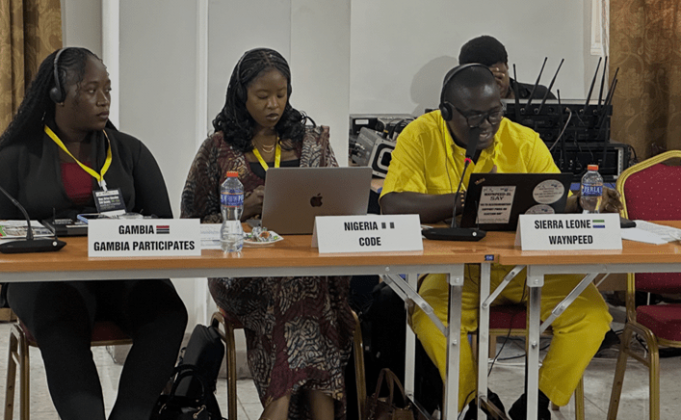
Charles Muchoki | Africa Guardian
Education-focused Civil Society Organisations (CSOs) from across the Economic Community of West African States (ECOWAS) region have gathered in Accra to foster collaboration, strengthen accountability, and create a unified voice for education advocacy. This three-day conference has brought together 24 participants from countries including Togo, Côte d’Ivoire, Sierra Leone, Liberia, Nigeria, Senegal, The Gambia, Benin, Guinea, Niger, Mali, and Ghana.
A significant outcome of the conference is the establishment of the West Africa Education Civil Society (WAECS) Platform. This platform aims to leverage the unique strengths of its members to influence policies and practices through innovative approaches, evidence-based research, and tested models for policy adoption and scaling.
A Unified Voice for Education Advocacy
Kofi Asare, Executive Director of Africa Education Watch (Eduwatch), emphasized the importance of the WAECS Platform in galvanizing the collective experiences and competencies of CSOs to enhance accountability in implementing education policies. The platform also aims to promote learning, capacity building, and mutual support among its members for country-level advocacy initiatives.
“Ghana is performing well in the sub-region compared to its neighbors, but given its resources, it can achieve even more. The WAECS Platform is a powerful initiative to enable country-level engagement and empower members to advocate for educational investments aligned with ECOWAS Vision 2050. This vision includes gender-transformative education, employment-related skills, digital education, and youth empowerment,” he noted.
Strategically aligned with ECOWAS Vision 2050, the WAECS Platform contributes to the promotion of human and social development and the leveraging of human capital and skills development. These goals are part of Pillar Four, which seeks to drive transformative, inclusive, and sustainable development.
Challenges in the Education Sector
Abdul Rahman Kays, a representative from Sierra Leone’s West Africa Youth Network for Peace, Education, and Economic Development (WAYNPEED), highlighted the challenges facing his country’s education sector. He pointed out that the government fails to meet the international benchmark of allocating 15-20% of the annual budget to education.
“In Sierra Leone, officials attend global education conferences and include their expenses in the education budget. This inflates allocations without contributing to meaningful development, which affects access, quality, and infrastructure,” he explained.
Building a Regional Framework
The conference’s key stakeholders are national CSOs in education recognized by their governments for their contributions to shaping education and skills development policies. These stakeholders bring significant value to national advocacy efforts and are committed to being part of the WAECS Platform.
Eduwatch is leading the initiative, leveraging its extensive network in West Africa to mobilize participants. Oxfam in Africa is also instrumental in encouraging CSOs from member countries to join the effort. The process began with stakeholder mapping through digital platforms to ensure the inclusion of reliable and influential CSOs. A consultant with expertise in organizational development is facilitating the creation of a strategy to unify regional interests.
Objectives and Expected Outcomes
Key objectives of the WAECS Platform include:
- Developing operational protocols and agreements.
- Identifying sources of funding for the platform.
- Collaborating on advocacy priorities related to education governance and accountability in West Africa.
Expected outcomes of the initiative include:
- Establishing an Education Civil Society Platform at the ECOWAS level to expand civic space and strengthen accountability for public education and skills development.
- Drafting a working document to guide platform operations, with input from member CSOs across West Africa.
- Identifying regional advocacy priorities in education and accountability.
The WAECS Platform represents a significant step toward unified and impactful advocacy for education in West Africa, fostering collaboration and driving policy change to achieve sustainable development goals.
___

